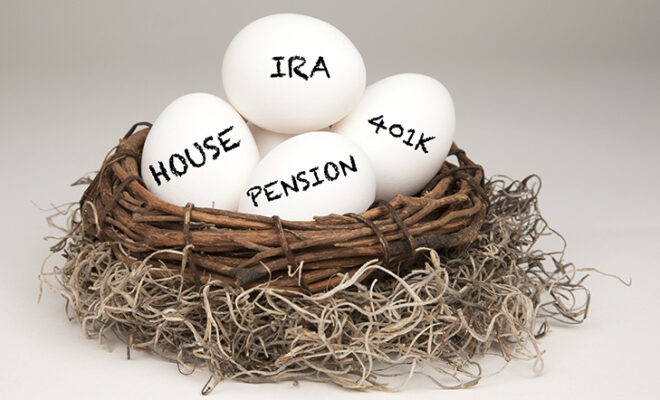Here’s Why Retirees Must Protect Themselves from Inflation

If you recall your childhood, you will realize how a couple of dollars of pocket money had a greater purchasing power back then than it has now. The cost of living has been increasing steeply over the years, with an average of around 3% every year in the last few decades. This may appear to be a meager figure, but over a period of 25-30 years, this could have a huge impact on your retirement savings. Research points out that at the current rate of increase in inflation, the cost of living may double 30 years from now. The effects of inflation are huge and cannot be ignored, yet many people tend to overlook the impacts of inflation in their financial planning strategies.
What is inflation and how can it affect your retirement savings?
Inflation can be defined as a general increase in the prices of commodities. It is measured for a basket of goods and services, which may vary with time. Although it is measured on individual levels, starting from the manufacturer to the consumer, many countries also use the Consumer Price Index (CPI) to determine the cost of living. The CPI measure helps governments and central banks to form their policies to combat the rising costs. It is important to invest in options that can outpace inflation in the long run.
Continued rising prices can have a huge impact on your retirement plans and detrimental effects on your savings. For example:
1. It diminishes your ability to buy things
Inflation devalues the value of a currency over time. This happens because people sometimes keep a limited vision of their savings and only consider their value in the present times. An investment of $5000 dollars with a yearly interest rate of 6% may seem like a good return in the current scenario, but its value may or may not hold the same meaning 20 years from now. It is essential to understand the value of your savings in the future. Here’s a calculator to help you understand how inflation can affect your retirement income.
2. It surpasses the value of Social Security
Although, Social Security benefits are adjusted periodically and commensurate with the Cost-of-Living Adjustment (COLA), inflation nevertheless outperforms the meager increment. In 2019, COLA was recorded at 2.8%. But this percentage falls to account or underestimate the value of certain sectors that can affect the purchasing power for Social Security. For example, between 2000 and 2018, the prices of prescription drugs increased by a staggering 188% due to which the purchasing power of Social Security fell by 34%.
3. It can outrun the return on fixed investments
The average rate of return from bonds and CDs has been only 2% in the recent years. On the contrary, the U.S stock markets have performed well with an average rate of return being 7% a year. It doesn’t mean that we should invest all our money in stocks, as the market is volatile, and carries greater risks than fixed-income instruments. Rather, a balance between high-risk assets and fixed-income assets is the way forward.
What are the steps you can take to stop inflation from eating away your retirement savings?
Although it is understandably difficult to predict how inflation could affect your future needs, keeping the following points in mind can provide you a cushion against the rising costs:
1. Modify your bond portfolios
Bonds are considered as fixed-income instruments that come with a relatively low amount of risk. However, inflation can affect the value of the returns generated on them. An effective tool that you can use to counter inflation can be a short-term bond. This can shield the bonds from future inflation, and upon maturation, the amount can be reinvested in bonds with a higher rate of interest. Additionally, you can also invest some of your bond portfolios into Treasury Inflation Protected Securities, or TIPS. As they are issued by the U.S government, they carry zero risks of defaulting. Although they provide a lower rate of interest, they are adjusted with fluctuations in the CPI, thereby keeping your investments secure.
2. Befriend stocks
Stocks are known to provide a higher rate of returns but also carry a high-risk rider with them. It is important to diversify your stock portfolio with a mixed bag of safe and high-risk investments. In spite of fluctuations in the short-run, they have shown to give higher returns in the long-run. Interestingly, experts suggest a formula to calculate the percentage of your assets that should be invested in stocks, by subtracting your age from 110.
3. Invest in real estate
There have been instances of downfall in housing prices such as during the Great Recession (the mid-2000s), but at large they have kept pace and even outperformed inflationary trends. You can consider renting out your real estate property to earn money in proportion to the rise in inflation. Commercial real estate stocks such as REITs and ETFs, can be considered as a viable option while dealing with inflation.
4. Delay Social Security benefits
Claiming these benefits after the age of 66, which is also considered to be the full retirement age (FRA), can give you an increase of 8% per year till the age of 70.
5. Reduce your expenses
This is not to advise you to live a life in frugality, but some extravagances can be curtailed with a view for a bright future.
6. Upskill yourself
Not just stocks, but investing in yourself and your skills can also help you battle inflation. This increases your monthly sources of income. You can consider working part-time or picking up a less tedious job after retirement. This can make you self-reliant so you don’t find yourself dependent on others for your financial needs. It also increases your purchasing capacity in the event of high inflation.
To sum it up
Nobody knows what the future holds; nonetheless, analyzing and factoring-in inflation while planning for your retirement years is a task that should not be left out. You may have seen deflation in the recent years, but inflation, in the long run, is the unavoidable foundation of economics. Economists have traditionally referred to inflation as the worst form of tax since it goes unnoticed in many circumstances. However, modern economists go softer on inflation and consider steep inflation as the real menace. In reality, modest inflation is a necessary evil, signifying growth in the economy.
It is important to invest your money in options that have the potential to outdo inflation in the future. You must also understand that not all portfolios garner similar returns; therefore, diversifying your assets is the best way to keep your future guarded against inflation.
Do you need help in finding the right investments that can help you beat inflation? Reach out to financial advisors for advice.














